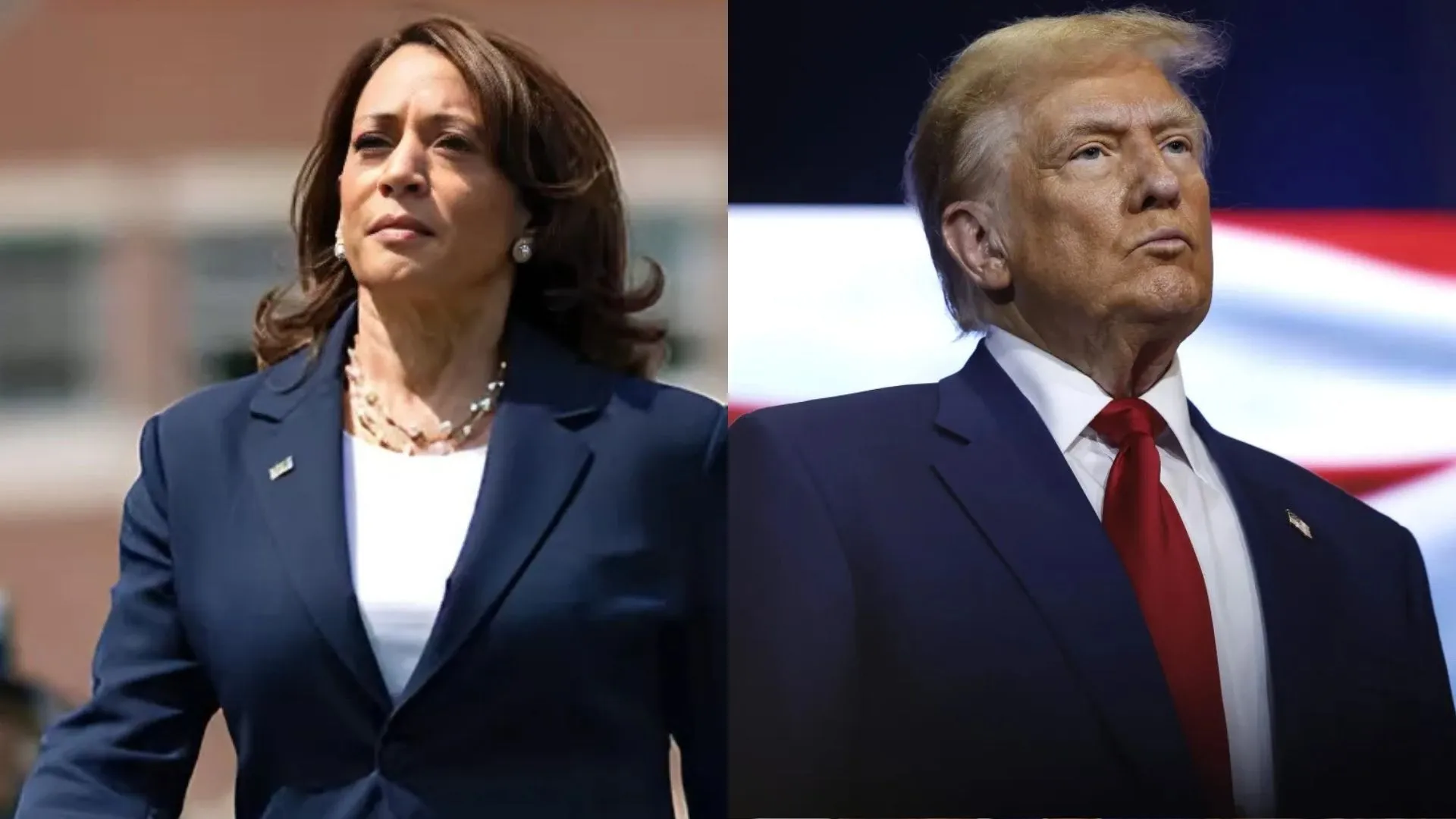The race between Donald Trump and Kamala Harris shows neck-to-neck as Election Day approaches in the U.S., with polls showing tight margins across pivotal swing states, including Pennsylvania, Michigan, Wisconsin, Nevada, Arizona, Georgia, and North Carolina. A
ccording to the Siena poll, Harris holds a slight edge or is tied with Trump in most battleground states, except Arizona, where Trump has a narrow lead. As both candidates make their final appeals, several crucial factors could sway voters.
Challenges Within The Republican Party
Trump’s support remains limited, with a nationwide favorability rating stuck around 43 percent, a ceiling he hasn’t surpassed since his presidency. This could indicate a struggle to secure the national popular vote. While he dominated the Republican primaries, a notable segment of Republican voters abstained from voting for him, hinting that not all traditional GOP supporters are fully on board.
Some Republican voters are likely to cast their votes for Trump, while others may abstain from the presidential vote altogether. There is also potential support for Harris from disaffected Republicans, creating a unique cross-party coalition that Harris may capitalize on. Additionally, Harris’s coalition of young voters, women, and people of color, who backed President Joe Biden in 2020, will be essential for her success. With a slightly higher favorability rating than Trump, Harris could benefit if she can consolidate these critical voter groups.
Economic Concerns Remain A Deciding Issue
As Americans grapple with economic uncertainties, concerns about household expenses, inflation, and overall economic stability are driving voter decisions. Since Biden and Harris assumed office, costs for basic goods and services have seen significant increases, with household budgets increasingly stretched. Polls in swing states suggest that voters trust Trump more on economic issues, with a notable 15-point margin favoring him over Harris in economic stewardship.
Harris faces the challenge of convincing voters that her administration can address these economic strains, while Trump’s campaign emphasizes that his policies would alleviate the cost-of-living pressures impacting American families.
Immigration And Border Security
Immigration remains another divisive issue. Trump has continuously emphasized border security since his initial campaign in 2015, highlighting concerns about crime and illegal immigration. Recent data shows that after a surge in immigration during the early Biden years, border crossings have slowed, yet Trump maintains a 15-point lead in voter confidence on managing immigration. This advantage positions him as the preferred candidate on border and security matters, especially among voters in states where immigration is a top concern.
Support For Women’s Rights
Harris has focused heavily on reproductive rights, a critical topic for many American women following the Supreme Court’s decision to overturn federal abortion protections. The decision has led several conservative states to restrict abortion access, sparking a strong response from women voters. Harris has positioned herself as a defender of women’s rights, with polling consistently showing that she holds a 15-point lead among women in swing states.
This lead may be bolstered further by states like Nevada and Arizona, where abortion rights are on the ballot, potentially aiding Harris’s support in these regions.
For many Americans, the stakes in this election extend beyond policies, touching on the broader question of democracy itself. Approximately half of Americans view Trump as a threat to democratic norms, concerned about his willingness to wield authoritarian power. Harris has framed her campaign around unity and collaboration, seeking to bridge divides between Republicans and Democrats.
Trump’s recent remarks have stirred controversy, including a comment about former Congresswoman Liz Cheney that invoked violent imagery. Harris quickly condemned the language, suggesting that such rhetoric demonstrates Trump’s unsuitability for office. In her words, Trump’s statements make him “disqualified and unqualified” to lead the nation, adding a moral dimension to her closing appeal.
Final Push To The Finish Line
Trump’s campaign remains optimistic, citing favorable poll positions and hoping for another upset as seen in 2016. The Trump team believes support is stronger than polls suggest, as voters may underreport their support for the former president. Meanwhile, Harris’s campaign is aggressively mobilizing support in swing states, with efforts reaching millions of voters through calls and door-to-door outreach.
Harris’s campaign manager believes the candidate is gaining momentum, particularly with undecided and female voters. Democrats are hopeful that a strong ground game will translate into voter turnout, especially in critical states like Pennsylvania, Michigan, and Wisconsin.
What The Outcome May Mean
If Harris clinches victory, it will signify voter support for a new direction and a rejection of Trump’s divisive rhetoric. Her success would reflect an effective voter outreach campaign and resonate with those seeking stability and unity. Conversely, a Trump victory would indicate voters’ preference for his economic and immigration policies and a willingness to overlook concerns about his character and past controversies. Either way, the election results will be a defining moment for the nation, setting the course for America’s future.




